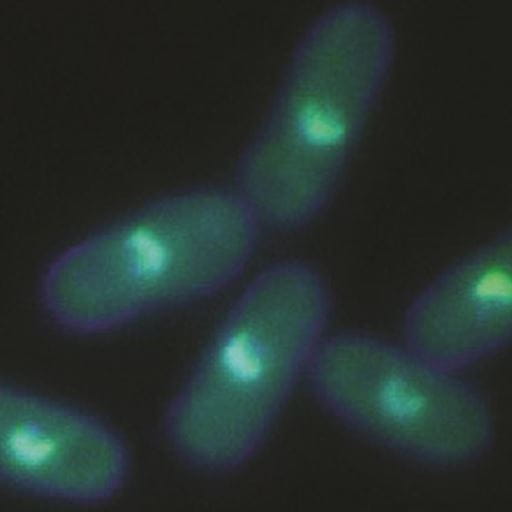Fixing protein production errors lengthen lifespan
-
Date
Fri 17 Sep 21

Reducing naturally occurring errors in protein synthesis (production) improves both health and lifespan, according to a new study involving University of Essex researchers.
Led by researchers at University College London (UCL) and the MRC London Institute of Medical Sciences, the new findings, published in leading journal Cell Metabolism, are the first to demonstrate a direct link between fewer protein mistakes and longevity.
Lead author Dr Ivana Bjedov, from the UCL Cancer Institute, said: “We commonly hear about DNA mutations, which can cause cancer, and are considered one of the underlying causes of ageing.
“However, mistakes in proteins and how they affect organismal health are largely neglected, despite the fact that errors introduced during synthesis of new proteins are much more frequent than mutations made during DNA replication.
“For this study we therefore focused on protein errors, and we questioned if fewer mistakes in proteins improve health and longevity”
Co-author, Dr Charalampos Rallis, from Essex’s School of Life Sciences and Head of the Cellular Ageing and Senescence research group, said: “This is the first study in diverse organisms and especially metazoans, demonstrating that, apart from the quantity of protein translation, quality and fidelity of this process can prolong longevity. Protein translation mistakes seem to be a costly biological burden that greatly affects cellular and organismal health. Our study points to new research directions that could potentially lead to interventions for improved health in the elderly.”
For the study, scientists investigated an evolutionary ‘hyper-accuracy’ mutation, known as RPS23 K60R, found in the ribosomes (cell’s protein producing factories) of hyperthermophilic Archaea, a single-celled organism that can live at extremely high temperatures.
Using genome editing, scientists engineered ribosomes to carry the identical mutation (a single amino acid change) as the hyperthermophilic Archaea, and thereby replicated its effect on protein synthesis in simple model organisms, namely fission yeast, worms, and fruit flies.
The team observed that the organisms’ proteins had fewer errors and, as a result, the organisms became heat resistant and lived longer.
In addition to the reengineered ribosomes, researchers found some drugs approved for human use can also reduce mistakes in proteins. Interestingly, these drugs, rapamycin, torin1 and trametinib, are also known to be anti-ageing drugs. They affect the cell’s ability to sense nutrients and therefore when applied in small quantities can have a similar effect as calorie restriction, a known pro-longevity treatment. This novel study suggests that reduction of protein errors is a unifying mechanism of anti-ageing drugs that could contribute to healthy ageing.
.jpg?mh=500&mw=500&hash=6568B6C9CCF5290A596BEF6678B6AD0E)



